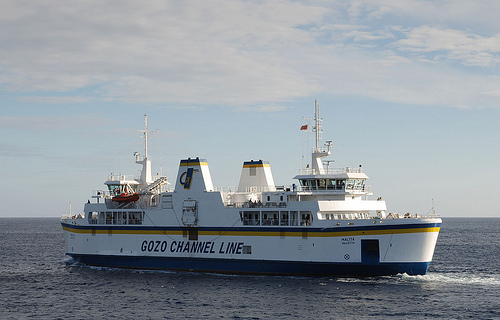“Futur fis-sod” they say, or “Malta taghna lkoll”. Slogans, they’re strong and they’re loud. They get repeated like some mantra gone wrong and woe betide anybody who dare criticise any of their darlings because you are immediately tagged as an undercover agent for “the other side”. Malta’s very own version of McCarthyism has now polluted the airwaves and the ether. We’re only a few days in the campaign and quite frankly the debate between dumb and dumber has only made us numb and number.
I dared praise Ranier Fsadni’s article in the Times only to find my status host to a mass of foam mouthed angry mob stirrers – angry because apparently Ranier has not been equally magnanimous in his criticism of the way things are done. Quite frankly I do not believe that I need to defend Ranier but I rather like the point he made – which remains a good point independently of Ranier. His point was simply that the media should be more demanding of our politicians. The sly fox did not come down in favour of one party or another – he simply put it to the reader that “trust” is not enough in these matters.
Raphael Vassallo plastered line after line of research that he came across in his line of investigation. Which is fine. What I cannot understand is how some of the flaws that people like Raphael point out suddenly become ok because, you know what, even the nationalists have been guilty of committing them. So that’s all right isn’t it? Fast tracking EIA plans? Can be done because MEPA does it already. Oh goody goody.
I don’t know where to start any more. The parties have even got a monopoly on how they roll out their plans and projects. I criticised Labour for being too shallow on Gozo – and praised the PN for having concrete proposals. Apparently Labour’s proposals on Gozo are pleasures yet to come. Who cares if the plan for the elections means that you will only know what Joseph Muscat will do to create jobs on the sister island come the last week of campaigning? Which is a load of bollocks. AD are supposed to roll out their FULL ELECTION PROPOSALS tomorrow. Do we really have to wait for the PLPN to drip their electoral proposals slowly like some form of chinese torture?
And one final thing. There are way too many sudden declarations in favour of this policy or that for my liking. The parties have to make their mind up on that one too. Either their policies are a well thought of step by step process built within a holistic framework or they are just being invented as the campaign unfurls.
Which also leads me to this sudden discovery by other pundits of our greatest sickness. I saw that Daphne Caruana Galizia the other day was complaining about the Maltese mentality that “having an opinion automatically means that it’s right”. Well thank Jupiter that the message that we have been drilling from these columns for aeons is finally coming through. Maltese relativism combined with this dumbing down of the nation is a direct by product of the PLPN vision of politics. Joseph Muscat has put this development on a fast track with his “m’hemmx ilwien u kuluri” , and “il-Malti jahdem u jistinka allura bilfors il-progetti jirnexxu”. It’s a project, it’s Maltese and it will create work because he says so. No questions asked.
This is the Brave New Political world for which various rent-a-pundits and sudden activists are suddenly foaming at the mouth. There are those who will take whatever their party says like it’s the bible truth. Others are just rabidly egging on the team that has to get into power if only because twenty-five years have hurt and you cannot trust the conniggling bastards in blue. The world begins and ends at the feet of Norman Vella and Peppi Azzopardi and the ridiculously sterile BA guidelines. And if the leader bows out of a Xarabank appointment then let’s make a fuss of it… because Xarabank taghna lkoll.
Their politics is ruining the prospects of this country and its future.



